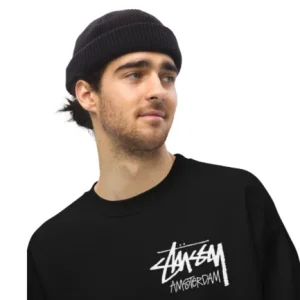Varicose veins can be more than just a cosmetic concern—they can lead to discomfort, swelling, and even more serious health complications if left untreated. For those seeking relief, the question often arises: Is sclerotherapy a reliable option for treating varicose veins? To answer this, it’s essential to understand the procedure, its effectiveness, and how it compares to other treatments. If you are considering options, consulting a vein treatment specialist can help you determine the best course of action.
What Is Sclerotherapy?
Sclerotherapy is a minimally invasive procedure designed to eliminate varicose and spider veins. During the procedure, a solution—typically a saline or chemical solution—is injected directly into the affected veins. This solution irritates the lining of the vein, causing it to collapse and eventually be reabsorbed by the body. Over time, the treated veins fade, and blood flow is naturally redirected to healthier veins.
One of the key advantages of sclerotherapy is that it is performed in an outpatient setting. Patients usually experience minimal discomfort and can resume daily activities shortly after treatment. The procedure typically takes between 30 to 60 minutes, depending on the number and size of veins being treated.
How Effective Is Sclerotherapy?
Numerous studies have shown that sclerotherapy can be highly effective for treating both spider veins and small to medium-sized varicose veins. Many patients report visible improvement within three to six weeks for smaller veins, while larger veins may take a few months to fade completely. Success rates vary depending on the severity of the veins and the patient’s overall health, but repeated treatments can enhance results.
It’s important to note that while sclerotherapy treats the visible veins, it does not prevent new varicose veins from developing. A comprehensive approach, guided by a vein treatment specialist, is essential to manage underlying vein issues and prevent recurrence.
What Are the Treatment Options for Varicose Veins?
Sclerotherapy is just one option among several for treating varicose veins. Understanding the range of treatments can help patients make informed decisions:
- Compression Therapy: Wearing compression stockings helps improve blood flow and reduce discomfort, swelling, and the risk of vein complications. While not a permanent solution, compression therapy can complement other treatments.
- Endovenous Laser Treatment (EVLT): This minimally invasive procedure uses laser energy to close off larger varicose veins. EVLT is often recommended for patients with more extensive vein issues that are not suitable for sclerotherapy.
- Radiofrequency Ablation (RFA): Similar to EVLT, RFA uses radiofrequency energy to heat and close problematic veins. This technique is highly effective for larger veins and offers a shorter recovery period compared to traditional vein surgery.
- Vein Stripping and Ligation: This surgical method involves removing or tying off the affected veins. It’s typically reserved for severe cases of varicose veins that do not respond to minimally invasive treatments.
- Ambulatory Phlebectomy: This outpatient procedure removes smaller varicose veins through tiny incisions. It’s often combined with other treatments for optimal results.
Each treatment has its benefits and limitations. A vein treatment specialist can evaluate your vein health and recommend the most effective option based on your condition, lifestyle, and medical history.
Benefits of Choosing Sclerotherapy
Sclerotherapy offers several advantages that make it a popular choice among patients:
- Minimally Invasive: There is no need for general anesthesia or extensive surgery.
- Quick Recovery: Most patients can resume normal activities almost immediately.
- Effective for Small to Medium Veins: Particularly effective for spider veins and smaller varicose veins.
- Outpatient Procedure: No hospital stay is required, making it convenient for busy schedules.
- Reduced Risk of Complications: Compared to traditional vein surgery, sclerotherapy carries fewer risks and side effects.
Patients often choose sclerotherapy for its combination of effectiveness, convenience, and minimal downtime. For those concerned about cosmetic appearance, sclerotherapy also significantly improves the look of the treated veins.
Potential Side Effects and Considerations
While sclerotherapy is generally safe, there are potential side effects to be aware of. Some patients may experience temporary bruising, redness, or swelling at the injection site. Rare complications include allergic reactions to the sclerosing solution or the formation of small blood clots.
It is essential to follow post-treatment care instructions, which may include wearing compression stockings and avoiding strenuous activity for a short period. Consulting with a vein treatment specialist ensures that any risks are minimized, and the treatment plan is tailored to your specific needs.
When to Seek Professional Advice
If you notice bulging veins, leg pain, swelling, or skin changes near your varicose veins, it’s crucial to seek professional advice. Early evaluation by a vein specialist can prevent complications such as blood clots, ulcers, or chronic venous insufficiency. Vein Treatment New Jersey provides comprehensive evaluations and personalized treatment plans for patients struggling with varicose veins.
Why Choose a Vein Treatment Specialist?
Varicose veins can be complex, and treatment requires expertise to achieve the best outcomes. A vein treatment specialist is trained to:
- Conduct thorough assessments, including ultrasound imaging to evaluate blood flow.
- Recommend the most suitable treatment options, whether it’s sclerotherapy, EVLT, or surgical intervention.
- Monitor progress and manage any post-treatment complications.
- Offer preventive strategies to reduce the likelihood of new varicose veins.
Working with a specialist ensures that treatment is safe, effective, and tailored to your unique vein condition.
Conclusion
Sclerotherapy remains a reliable and effective option for many patients dealing with varicose veins. Its minimally invasive nature, quick recovery, and proven success rates make it a top choice for treating small to medium-sized veins. However, it is just one of several options available. Understanding what are the treatment options for varicose veins and consulting a vein treatment specialist ensures that you receive the most appropriate care for your condition.
For residents of New Jersey, Vein Treatment New Jersey offers expert evaluations, advanced procedures, and personalized care plans to help you achieve healthier, pain-free legs. By choosing a reputable vein clinic, you can enjoy both functional relief and cosmetic improvement, enhancing your quality of life.









